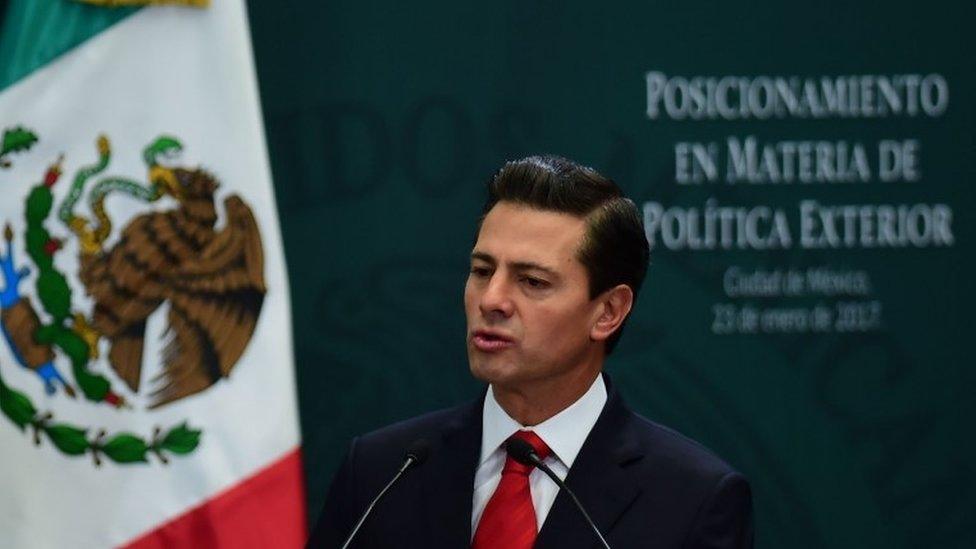Your questions on Trump's wall answered by Anthony Zurcher
- Published
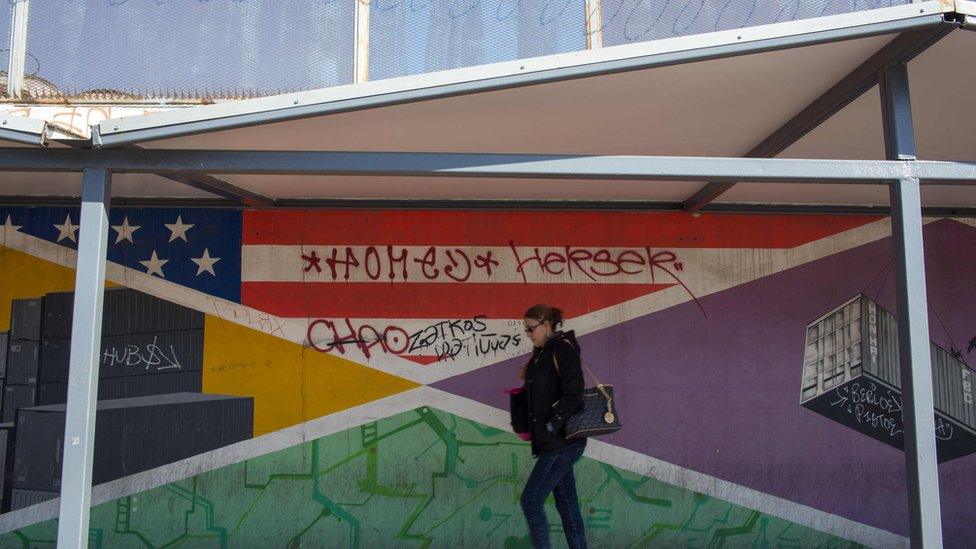
President Donald Trump says there will be "immediate construction of a border wall" between the US and Mexico.
The border is about 1,900 miles (3,100km) long.
We asked you to send in your questions, and our Washington correspondent Anthony Zurcher has answered some of them

What happens to people in Mexico who want to visit America or Americans visiting family and friends in Mexico?
Although Donald Trump is intent on building a border wall, during the campaign he often said that the wall would have a "big, beautiful door".
Although it's never entirely safe to draw conclusions from what Mr Trump has said as a candidate, this probably means he would allow free movement between the two nations for things such as tourism and family visits.
Mr Trump appears on the verge of announcing a visa ban for certain majority-Muslim countries, but there is currently no talk of such a move for Mexicans visiting the US. Mexicans who live near the US border can presently obtain a border-crossing card, which allows unlimited passage into the US territory within 25 miles of the border for up to 10 years.

Curious to know if the wall's steel and other materials will come from China.
Earlier this week, when Mr Trump signed an executive action reopening the approval process for several delayed US pipeline projects, he also issued an order requiring that those projects be made with American steel.
Mr Trump could try to make similar requirements for the wall project - which independent estimates suggest will cost about $14bn (£11bn).
One potential hitch in Mr Trump's plans is that these kind of requirements almost certainly fall foul of current US commitments made to the World Trade Organization, which prevent discrimination against foreign-produced goods once they clear customs.
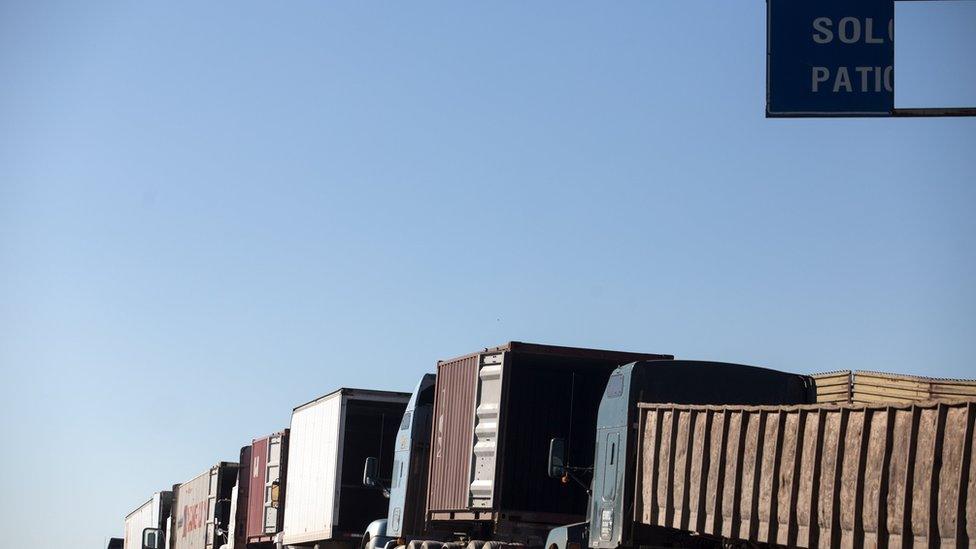

After the wall is built, will immigration and border access to the US be harder for other people around the world as well as Mexicans?
It depends on where you're coming from.
If you live in a country such as Iraq, Iran, Syria, Somalia, Sudan, Yemen, Libya, things could be about to get much more difficult - even impossible, if reports of a visa ban are true.
Mr Trump has announced a significant investment in US Immigration and Customs Enforcement - including more funding and personnel.
More resources probably mean a greater ability to conduct border screenings and security reviews at all points of entry into the US, which could cause difficulty for some trying to enter the US.

Does President Trump plan to build a wall stopping immigrants from Canada entering the US? Surely they are taking American jobs too?
Mr Trump seems decidedly less concerned about US-Canadian security than he does about the nation's southern border.
During his campaign announcement speech, Mr Trump said that Mexican immigrants were bringing drugs and crime into the US - a charge the president has not directed against Canadians.

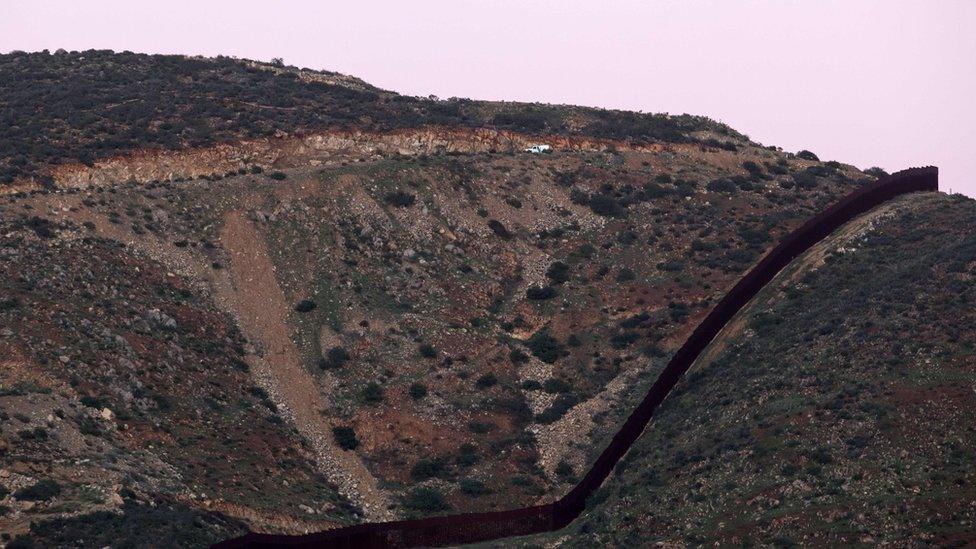
The wall will have to pass through privately owned Texan land. How will President Trump be able to achieve this?
The federal government will probably use its powers of "eminent domain" to acquire - at what it deems a fair market price - any private land necessary for construction of the wall.
This is the same kind of authority that allows the government to obtain land for oil pipelines, community redevelopment programmes and infrastructure projects.
Perhaps ironically, it's a government power that has often been the subject of sharp criticism from conservative circles - although Mr Trump has defended it in the past.

Would ongoing maintenance requirements and security considerations for a wall probably require transferral of budgets from other services?
A 2,000-mile wall isn't going to patrol or repair itself, so there will have to be some form of recurring financial obligation once the structure is completed.
Appropriating funds for that is the responsibility of Congress - which could either reallocate money from other areas of the federal budget, find a way of extracting the ongoing costs from the Mexican government or (most likely) finance it through increased deficit spending.

What steps are to be implemented to stop people burrowing under the wall?
It's next to impossible to construct a wall that can't be tunnelled under. Any efforts to circumvent the barrier will have to be identified and dealt with by the US Border Patrol.
During the campaign, Mr Trump said the US would use above- and below-ground technology to detect tunnels - although current systems are unreliable.
Since 1990, federal agents have discovered more than 200 tunnels under the existing border walls, which they have then filled with concrete.

Would it even be possible for construction to be completed within his term?
A lot depends on the design of the wall and the amount of resources dedicated to its construction, but it seems highly doubtful that a permanent, impenetrable barrier could be built along the length of the 2,000-plus-mile US-Mexican border in one four-year presidential term.
It took the US more than six years to build just 700 miles of border fence.

How will President Trump's wall affect the farming industry in the United States? Who will take the laborious jobs that immigrants have filled?
That's a very good question. American business, particularly in the agriculture, construction and food-processing industries, has relied on undocumented workers as a regular, low-cost source of labour - one that can expand or contract based on the condition of the economy and a business's needs.
If that resource were no longer available, companies would have to look for workers from the domestic labour pool - and they would very probably have to pay higher wages to attract them. Another option, at least for some businesses, is to increase reliance on automation.
Either way, it will drive up production costs and that could be reflected in the price of goods for US consumers.

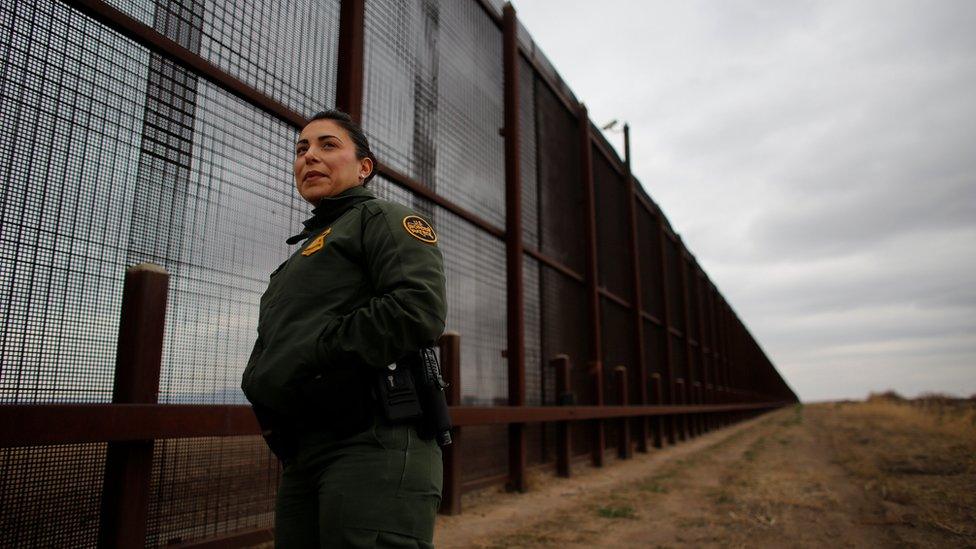
How will President Trump extract payment from Mexico and what action he would take when they refuse to pay?
Mr Trump has been vague about how he will get the Mexican government to pay for the wall, although his campaign did float some ideas, such as a tax on financial remittances sent into Mexico from individuals in the US or increased border fees.
Others have proposed funding the wall by redirecting aid currently given to Mexico, although cutting things such as support for counter-narcotics programmes could have unwanted effects on border security.
Wall funding could also be rolled into the North American Free Trade Agreement (Nafta) negotiations Mr Trump has promised to re-open, although Mexican President Enrique Pena Nieto has been adamant that Mexico will not contribute to the wall's construction.
"Mexico doesn't believe in walls," he said in an address to the Mexican people posted on Twitter on Wednesday. "Mexico will not pay for any wall."

Will the wall really stop drug trafficking and the other illegal activities?
Even an imposing, complete wall along the US-Mexican border may not do much to make a dent in drug trafficking.
According to a 2015 US government "national drug threat assessment", the bulk of illegal narcotics enter the US through border checkpoints and points of entry, hidden among more than 5.5 million commercial trucks that cross the US-Mexican border every year.
Undocumented immigration is a similar story. Most of the Mexicans who are in the US illegally entered through legal means and then overstayed their visas, not by illicit border-crossing that a wall could prevent.

- Published26 January 2017
